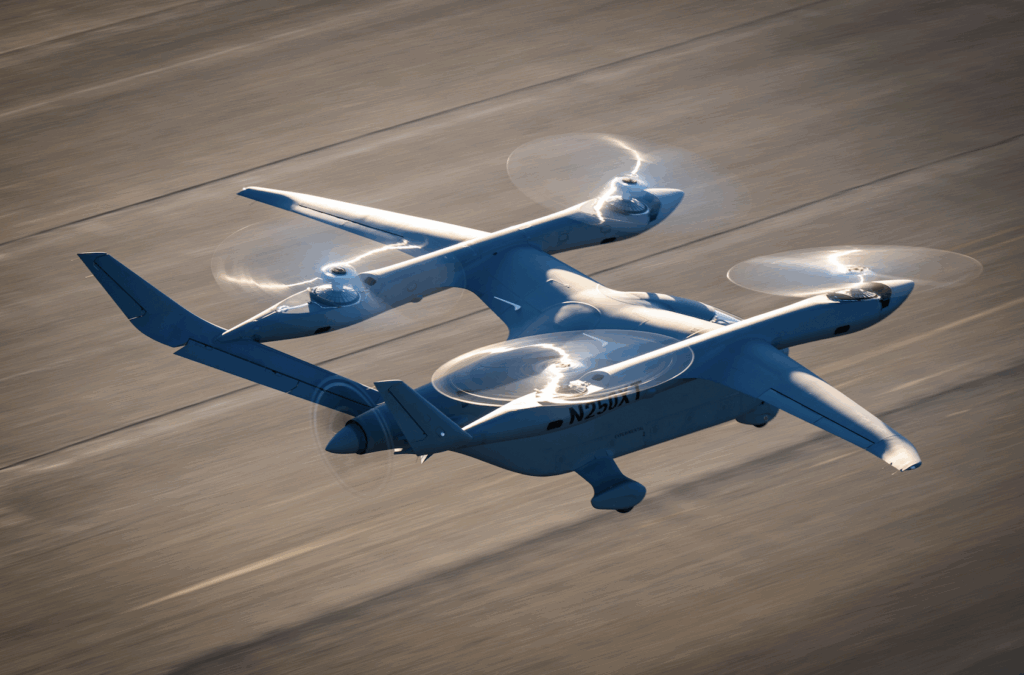
BETA Technologies is accelerating the development of autonomous capabilities for its electric and hybrid Vertical Takeoff and Landing (VTOL) aircraft through a strategic collaboration with Near Earth Autonomy.
The partnership focuses on integrating Near Earth’s expertise in perception, guidance, and path planning into BETA’s existing Fly-by-Wire (FBW) flight control technology. This collaboration is intended to support the development of certifiable autonomous systems suitable for a variety of mission sets, ranging from defense applications to commercial cargo logistics. BETA has successfully completed the initial integration of the perception and guidance suite into its flight control system and anticipates that flight testing will begin in the first half of 2026.
While BETA’s piloted aircraft are currently capable of carrying up to 1,240 pounds or five passengers, the removal of the pilot is expected to nearly double this payload capacity. The company aims to utilize autonomy to enable aircraft to fly faster, further, and carry heavier loads. This builds upon BETA’s internal development over the past several years, during which the company has conducted more than 1,000 hours of uncrewed flights on a fleet of subscale aircraft, demonstrating a range of more than 158 nautical miles on a single charge.
Shawn Hall, BETA’s Chief Revenue Officer, said, “Increasing our autonomy capabilities will deliver even greater optionality to operators, including faster speed, higher payload, longer range, and optional piloting.
“In order to meet the demands of the defense and civil sectors today, mobility platforms must be smarter, more flexible, and ready to operate where traditional systems can’t. Recent announcements from the Department of Transportation and Department of War both point towards the accelerated fielding of autonomous aircraft. We are excited to be at the center of this effort with both civil and military customers.”
Near Earth Autonomy brings experience from supplying autonomous systems to the U.S. military and industry OEMs. This includes work on Responsive Uncrewed Capability (RUC) for helicopters, such as converting the UH-60L Black Hawk for unpiloted operations.
Sanjiv Singh, CEO of Near Earth Autonomy, added, “This collaboration builds on Near Earth’s proven work of bringing Responsive Uncrewed Capability (RUC) to helicopters, such as converting the UH-60L Black Hawk to RUC-60 enabling helicopters operations without onboard pilots. By leveraging the technology foundation, operational experience, and certification groundwork established through the RUC-60 program, we will help integrate advanced autonomy into ALIA to enable safe, efficient, and scalable operations across a wide range of missions.
“Partnering with BETA Technologies is a natural extension of our experience and expertise in bringing autonomy to a variety of missions and aircraft. Working with a pioneer in electric aviation allows us to combine high-assurance autonomy with cutting-edge electric propulsion to help unlock sustainable, scalable autonomous air mobility.”
The push for autonomy is supported by recent administrative initiatives, including an executive order regarding the U.S. Department of Transportation’s Electric Vertical Takeoff and Landing Integration Pilot Program (eIPP) and the publication of six Critical Technology Areas by the War Department, which includes contested logistics. These demand signals are accelerating the expansion of BETA’s offerings to military customers as well as commercial logistics partners such as UPS, Bristow, and e-Smart Logistics.
BETA’s aircraft are engineered for all-weather performance, with Instrument Flight Rules (IFR) and Flight Into Known Icing (FIKI) capabilities on the near-term roadmap. The company has conducted extensive real-world operations, including flights across the U.S., Europe, and New Zealand, and has completed joint military exercises with a 100% dispatch rate.





